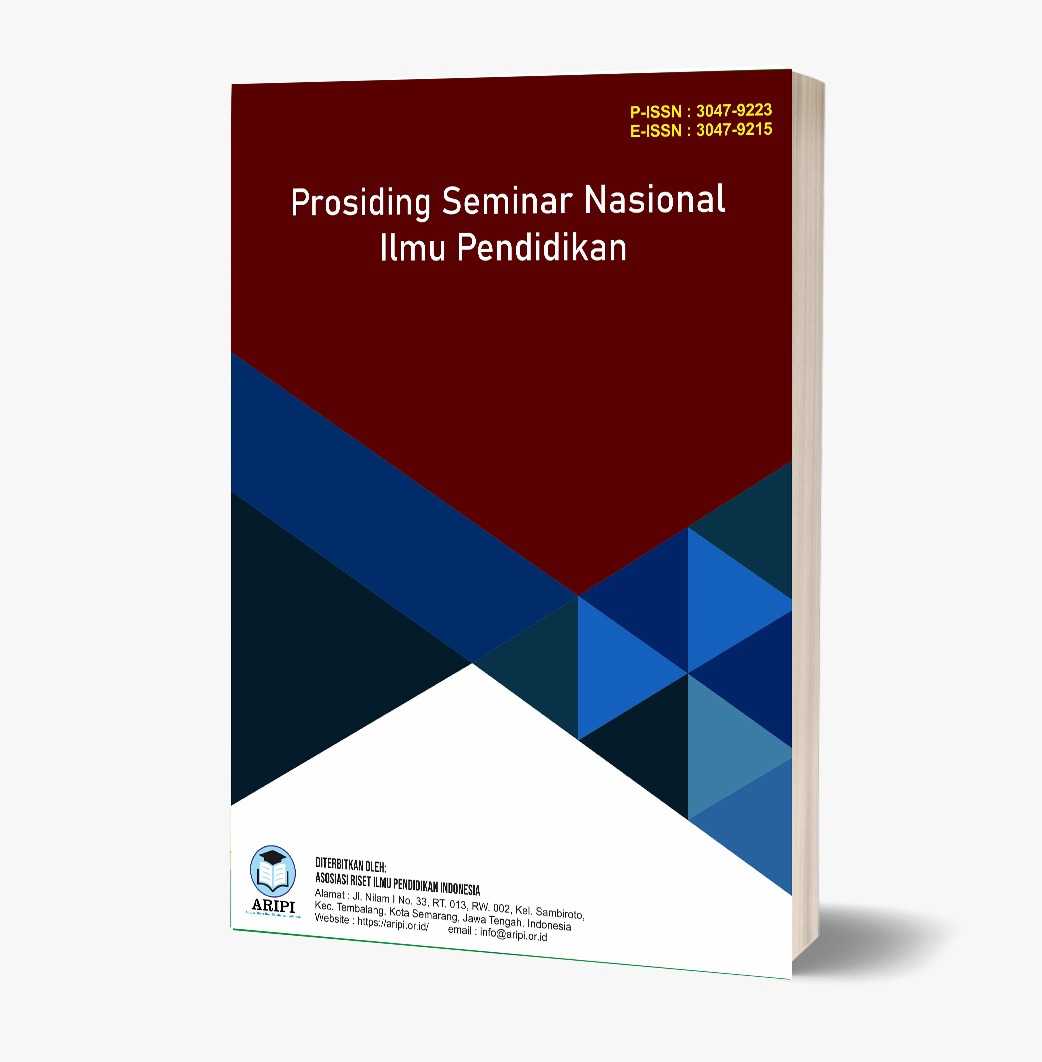Implikasi UU ITE terhadap Kebebasan Pers menurut Perspektif Teori Lawrence M. Friedman
DOI:
https://doi.org/10.62951/prosemnasipi.v2i1.131Keywords:
UU ITE, Press Freedom, Lawrence M. Friedman TheoryAbstract
As a democratic legal state, Indonesia is obligated to guarantee press freedom as an information source for the community and as a social watchdog. The ITE Law, a response to technological developments, affects the existence of press media, which now present information digitally. This research focuses on two main issues: First, it examines the implications of the ITE Law on press freedom using Lawrence M. Friedman's theory. Second, it explores how to ideally guarantee press freedom through the legal protection of journalists. This study aims to examine the extent to which the ITE Law restricts press freedom. This study employs a normative juridical approach with a literature review and case analysis of the criminalization of journalists in Indonesia. The results show that the ITE Law creates legal ambiguity, thus triggering the abuse of vague articles, particularly Article 26, paragraph 3, which contradicts press freedom as protected by the 1945 Constitution. The study concludes that there is a need for a fundamental revision of the ITE Law to create a balance between individual rights and public interests. Alternative solutions include synchronizing the law with the press law and strengthening the role of the Press Council.
References
CNN Indonesia. (2021, Desember 1). AJI: 3 tahun terakhir ada 15 jurnalis-media yang dijerat UU ITE. CNNIndonesia.com. https://www.cnnindonesia.com/nasional/20211201151322-12-728525/aji-3-tahun-terakhir-ada-15-jurnalis-media-yang-dijerat-uu-ite
Fadlilah, M. N., Fauziah, S. S., & Achya, D. K. A. (2022). Tinjauan yuridis mengenai pertentangan hukum yang hidup dalam masyarakat dalam Pasal 2 pada rancangan Kitab Undang-Undang Hukum Pidana dengan asas legalitas. AL-MANHAJ: Jurnal Hukum dan Pranata Sosial Islam, 4(2), 505–514. https://doi.org/10.37680/almanhaj.v4i2.1790
Hamzani, A. I. (2014). Menggagas Indonesia sebagai negara hukum yang membahagiakan rakyatnya. Yustisia, 137.
Hidayat, R. (2021, Februari 22). Melihat tren ‘korban’ jeratan UU ITE. Hukumonline.com. https://www.hukumonline.com/berita/a/melihat-tren-korban-jeratan-uu-ite-lt6033d91c46c27/
Iskandar, D., Zulbaidah, W., & Almanda, A. (2024). Perkembangan teori dan penerapan asas legalitas dalam hukum pidana Indonesia. JIMMI: Jurnal Ilmiah Mahasiswa Multidisiplin, 1(3), 293–305.
Izzudin, H. (2025). Fakta-fakta teror kepala babi dan bangkai tikus ke kantor Tempo. Tempo.co. https://www.tempo.co/politik/fakta-fakta-teror-kepala-babi-dan-bangkai-tikus-ke-kantor-tempo-1223101
Kusuma, E. (2023). Kebebasan berpendapat dan kaitannya dengan hak asasi manusia (HAM). Sanskara Hukum dan HAM, 1(3), 97–101. https://doi.org/10.58812/shh.v1i03.63
LBH Pers. (2021, Maret 10). [Siaran pers] Komunitas pers desak segera revisi UU ITE. https://lbhpers.org/2021/03/10/siaran-pers-komunitas-pers-desak-segera-revisi-uu-ite/
Pahlevi, F. (2022). Pemberantasan korupsi di Indonesia: Perspektif legal system Lawrence M. Friedman. Jurnal El-Dusturie, 1(1), 31.
Prasetyo, A. (2021, Februari 16). Polemik UU ITE, ini daftar pasal kontroversi. Hukumonline.com. https://www.hukumonline.com/berita/a/polemik-uu-ite--ini-daftar-pasal-kontroversi-lt602b902891fcb/?page=4
Ramadhani, F. (2023). Dinamika UU ITE sebagai hukum positif di Indonesia guna meminimalisir kejahatan siber. Kultura: Jurnal Ilmu Hukum, Sosial, dan Humaniora, 1(1), 89–97.
Reporters Without Borders. (2025). Asia-Pacific: Indonesia. https://rsf.org/en/country/indonesia
Ridlwan, Z. (2012). Fiat Justitia: Jurnal Ilmu Hukum. Fiat Justitia: Jurnal Ilmu Hukum, 5(2), 1–15.
Sandy, O. P. (2019, Januari 8). Sepanjang 2018 pelanggaran UU ITE berjumlah 292 kasus. Cyberthreat.id. https://cyberthreat.id/read/1002/Sepanjang-2018-Pelanggaran-UU-
Shalihah, F. (2017). Sosiologi hukum. PT RajaGrafindo Persada.
Siagian. (2023). Optimalisasi teori sistem hukum Lawrence Meir Friedman dalam kewenangan penyidikan tindak pidana korupsi di Indonesia. JUSTICE: Journal of Law, 2(4), 195.
Suparman, A., dkk. (2023). Tinjauan kritis Pasal 27 & Pasal 28 UU ITE terhadap kebebasan pers. Jurnal Risalah Kenotariatan, 4(1), 5. https://risalah.unram.ac.id/index.php/risalah/article/view/82
Surbakti, D. (2016). Peran dan fungsi pers menurut Undang-Undang Pers tahun 1999 serta perkembangannya. Jurnal Hukum PRIORIS, 5(1), 77–86. https://doi.org/10.25105/prio.v5i1.396
Suwardi, H. (1993). Peranan pers dalam politik Indonesia. PT Pustaka Sinar Harapan.
Taher, A. P. (2021). Janggalnya kasus jurnalis Asrul: Abaikan UU Pers & dijerat UU ITE. Tirto.id.
Wahyudin, A. (2021). Policy paper: UU ITE mengancam kebebasan pers. LBH Pers. https://www.lbhpers.org
Wulandari, F., dkk. (2025). Implikasi UU ITE terhadap kebebasan pers di Indonesia. Jurnal Hukum Progresif, 8(1), 149. https://law.ojs.co.id/index.php/jhp/article/view/598
Downloads
Published
How to Cite
Issue
Section
License
Copyright (c) 2025 Prosiding Seminar Nasional Ilmu Pendidikan

This work is licensed under a Creative Commons Attribution-ShareAlike 4.0 International License.







